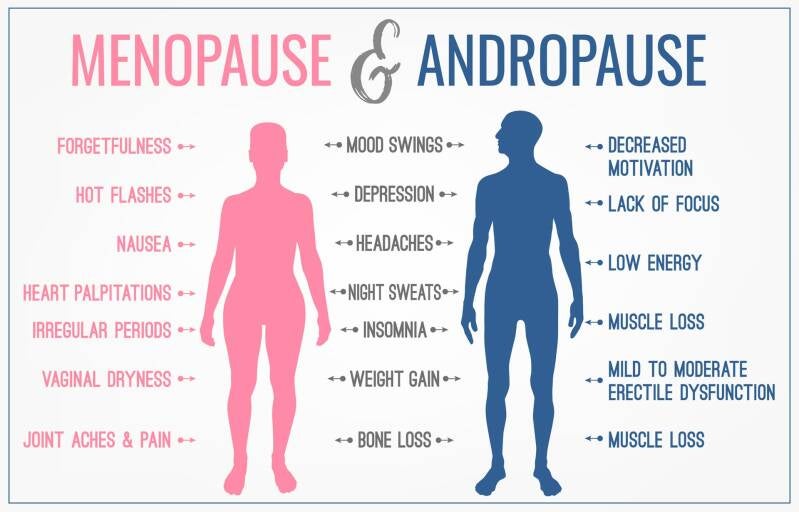The Midlife Plot Twist No One Warned Us About
If someone had told you in your twenties that you’d one day be arguing over the correct room temperature like it’s a hostage negotiation, you’d have laughed. Loudly. And yet… here we are.
Welcome to midlife — where menopause crashes into andropause, and suddenly the two of you are starring in a hormonal remake of Fast & Furious, except nobody’s fast and everyone’s furious.
The Silent Double Whammy
Here’s the thing: women talk about menopause (eventually). Men? We’d rather lick a nine-volt battery than admit something’s shifting under the bonnet. But the truth is, both partners can be going through massive hormonal changes at the exact same time, and it hits relationships right where it hurts — energy, mood, confidence and communication.
Menopause is widely known. Andropause… less so. But it’s real. Testosterone starts dipping, motivation takes a holiday, sleep becomes rubbish, and your patience? Well, that packed its bags ages ago.
So now you’ve got:
-
A woman dealing with hot flushes, brain fog and feeling misunderstood
-
A man feeling knackered, irritable and unsure what the hell is happening
-
Both thinking the other is acting weird
It’s not weird. It’s hormones doing a midlife duet.
The Clash in the Middle
This is where couples hit the danger zone.
She’s tired, overwhelmed, fed up of feeling unheard.
You’re tired, overwhelmed, fed up of feeling like nothing you say is right.
Suddenly, the tiny things explode:
-
“Did you want a cup of tea?” becomes a crime scene.
-
The thermostat becomes a battleground.
-
Sex becomes a topic both of you avoid like the microwave at 3am.
In the middle of it all? Two people who still love each other, but who feel like strangers in the same house.
Why Midlife Feels So Personal
Hormonal changes don’t just affect the body— they affect identity.
Women often feel like they’re losing control of their emotions.
Men feel like they’re losing control of their edge, their drive, their sense of self.
Two identity crises at once.
In one house.
During a cost-of-living crisis.
It’s a miracle we’re all still talking.
But here’s the good news…
This Can Be the Making of Your Relationship
Yes, really.
You know how teenagers go through a massive emotional transition and come out the other side as proper adults? Midlife is that — but with mortgages and back pain.
If couples choose to lean in rather than pull away, something pretty incredible happens:
-
You learn to communicate honestly
-
You stop bottling things up
-
You become more patient with each other
-
You start tackling life as a team instead of opponents
This is the stage where relationships either fracture… or become bulletproof.
So How Do You Survive the Hormone Collision?
⭐ 1. Talk like you mean it
Not polite, surface-level stuff. Honest, clumsy, real conversations.
Say the things you don’t normally say.
Men — yes, even you.
⭐ 2. Don’t take everything personally
It’s the hormones talking 30% of the time… and exhaustion doing the rest.
⭐ 3. Share the emotional load
Both of you are going through changes. Support has to go both ways.
⭐ 4. Laugh whenever you can
Because if you don’t laugh when you’ve spent half an hour arguing about how open the window should be, you’ll cry.
⭐ 5. Seek help when you need it
Doctors, counsellors, therapists, books, blogs, groups — whatever helps you both understand what’s going on.
The Bottom Line
You’re not broken.
She’s not broken.
Your relationship isn’t broken.
You’re just entering a brand-new chapter — one that nobody prepared you for, and one most couples never talk about until it’s nearly too late.
But when andropause meets menopause, something powerful can happen:
You finally see each other again. Not as parents, or workers, or routine-lifers… but as humans who still want to be loved, understood, and supported.
Midlife isn’t the beginning of the end.
It’s the end of the old way of doing things — and the start of something wiser, deeper, and far more connected.

Add comment
Comments